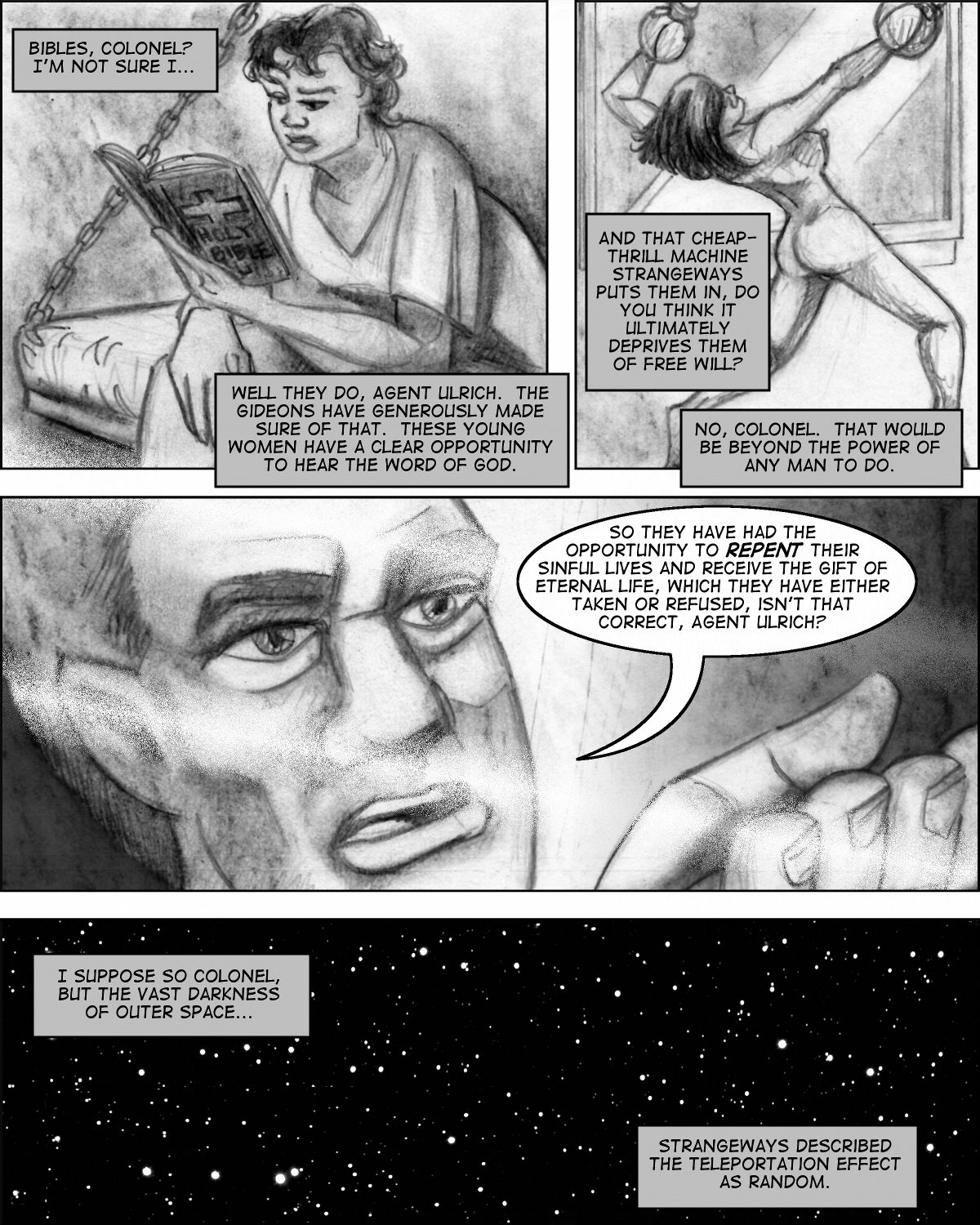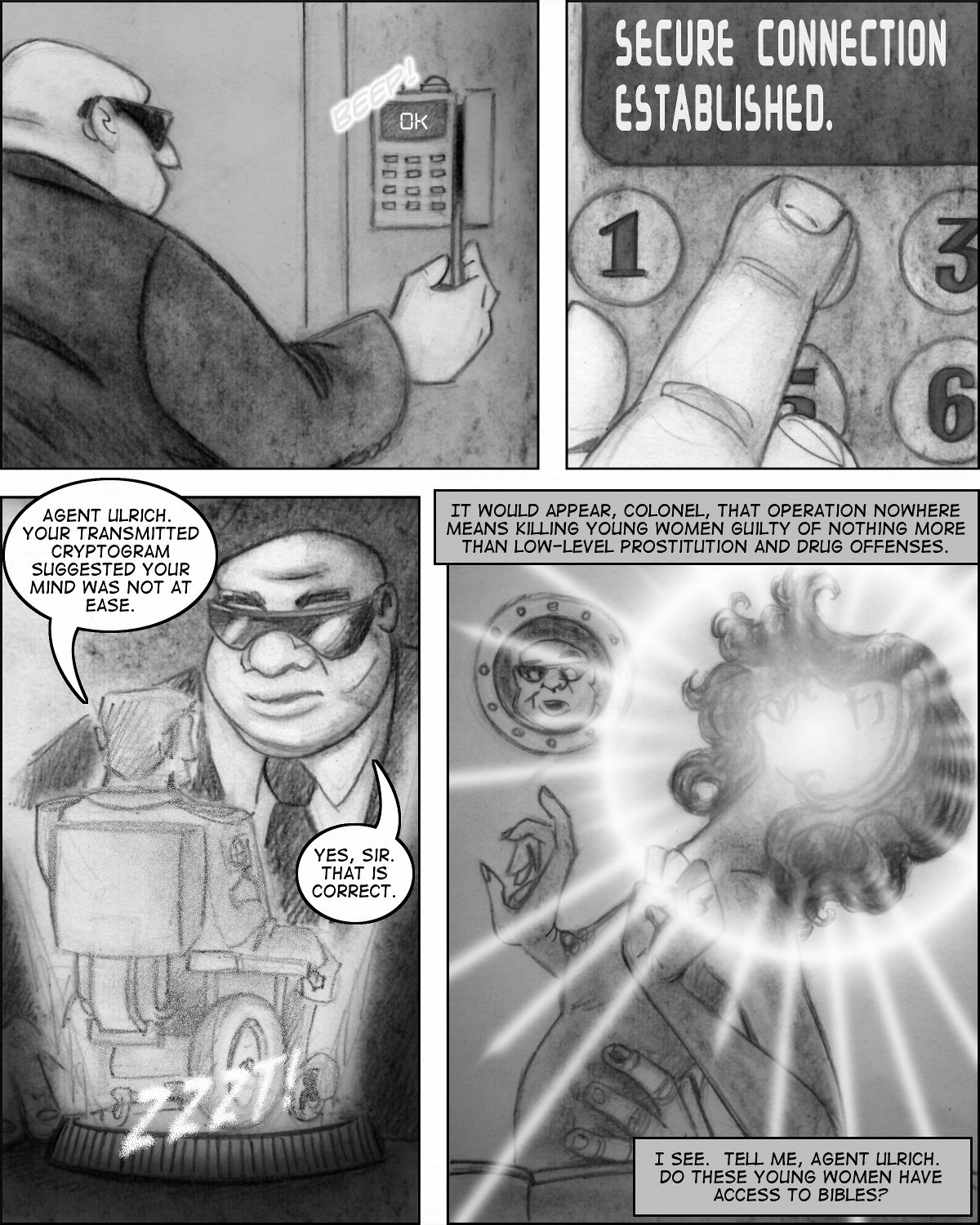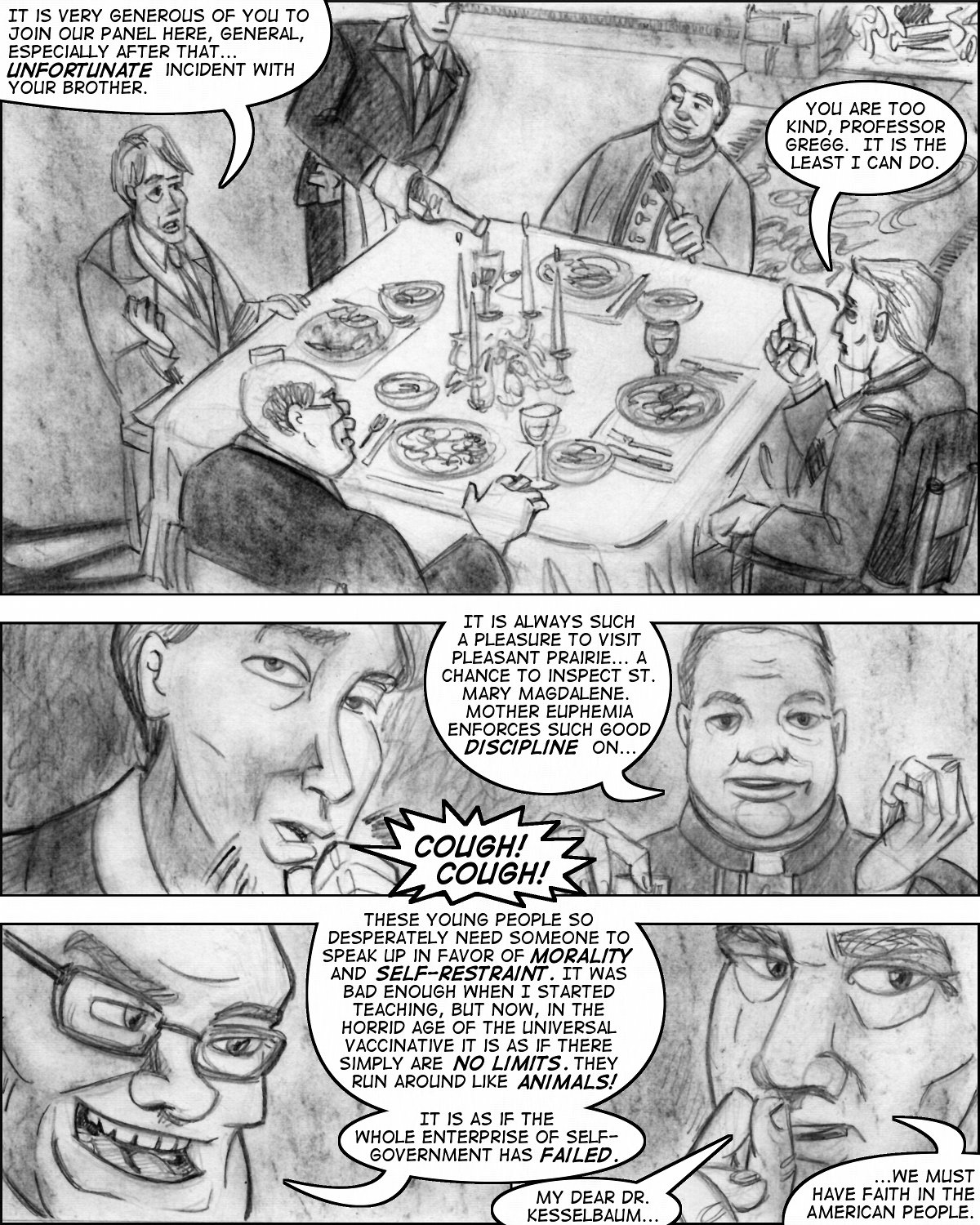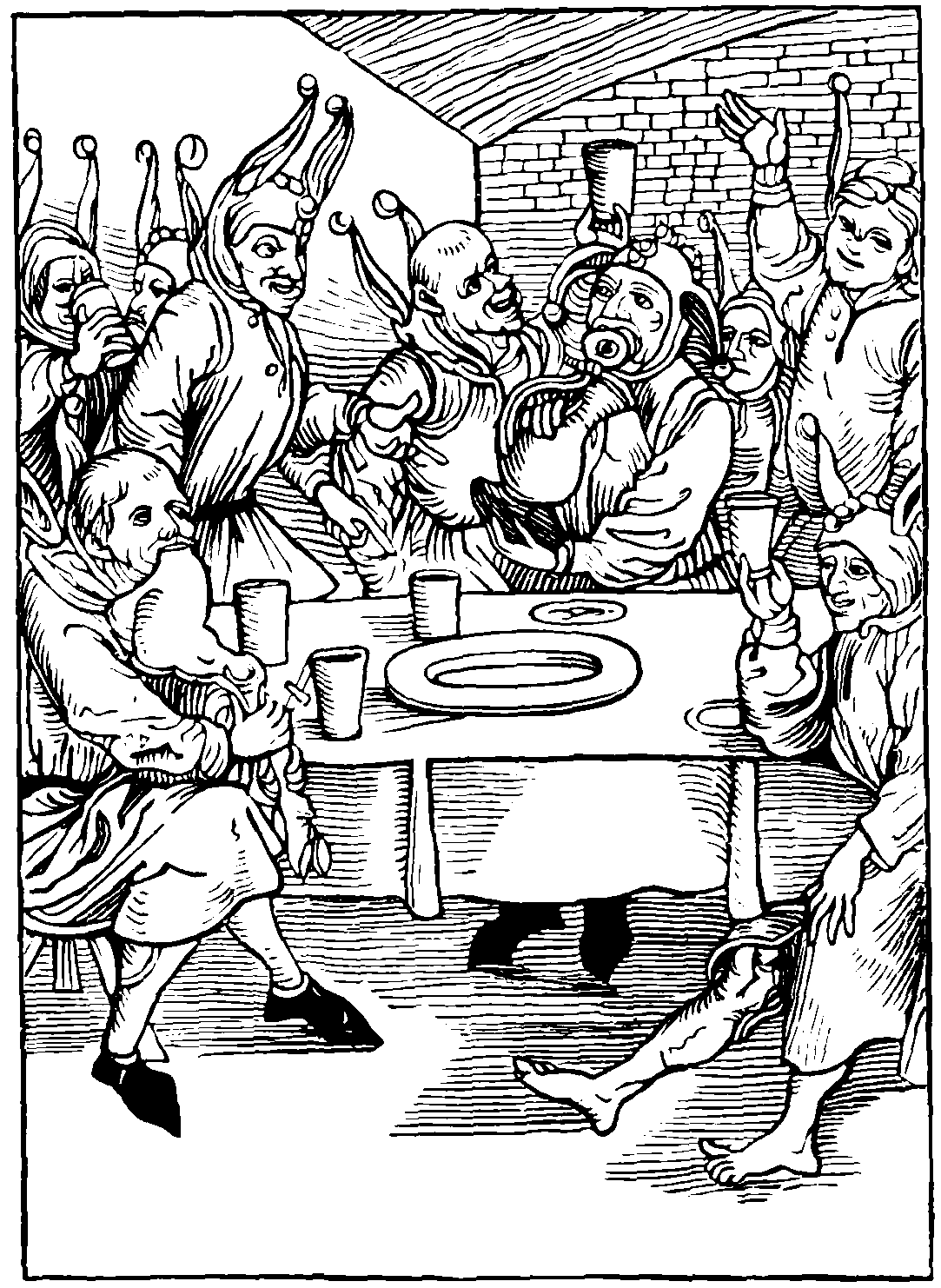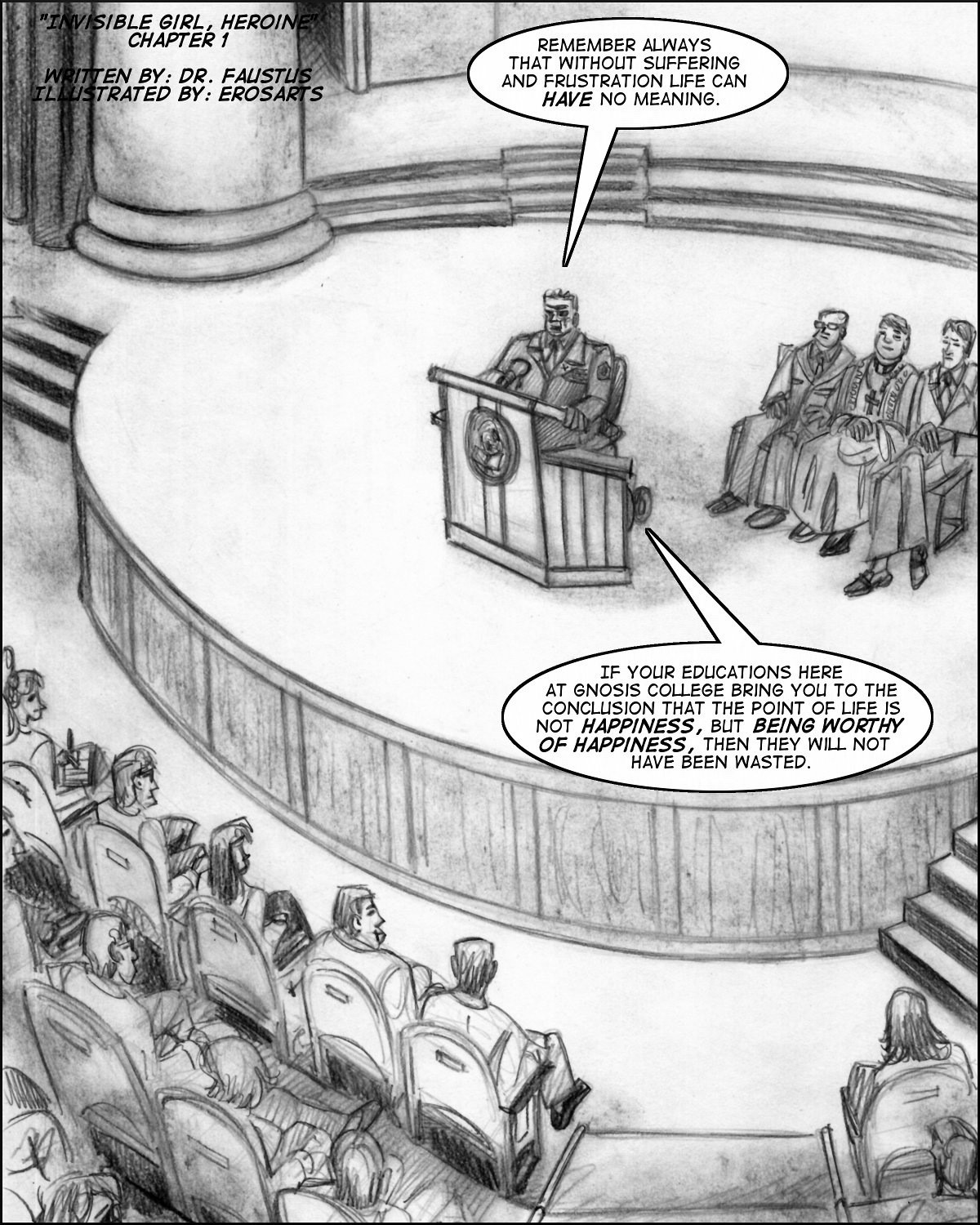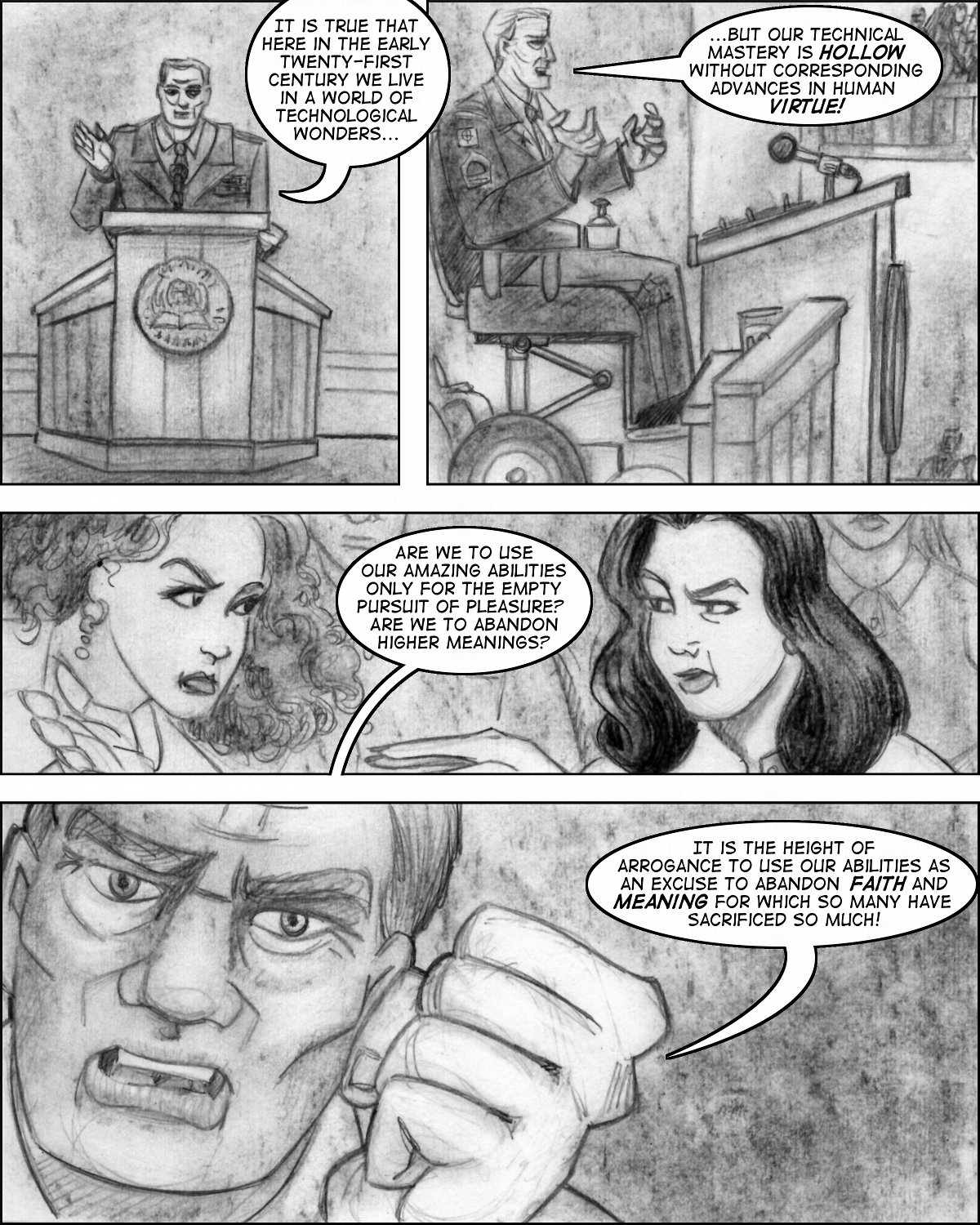Right after the super-patriotic, brave, helpful, clean, young Special Forces Lieutenant John Samson provides a demonstration of his enhanced manliness for Colonel Madder, the Colonel gives us a little theology lesson, about Adam and Eve in the Garden of Eden:
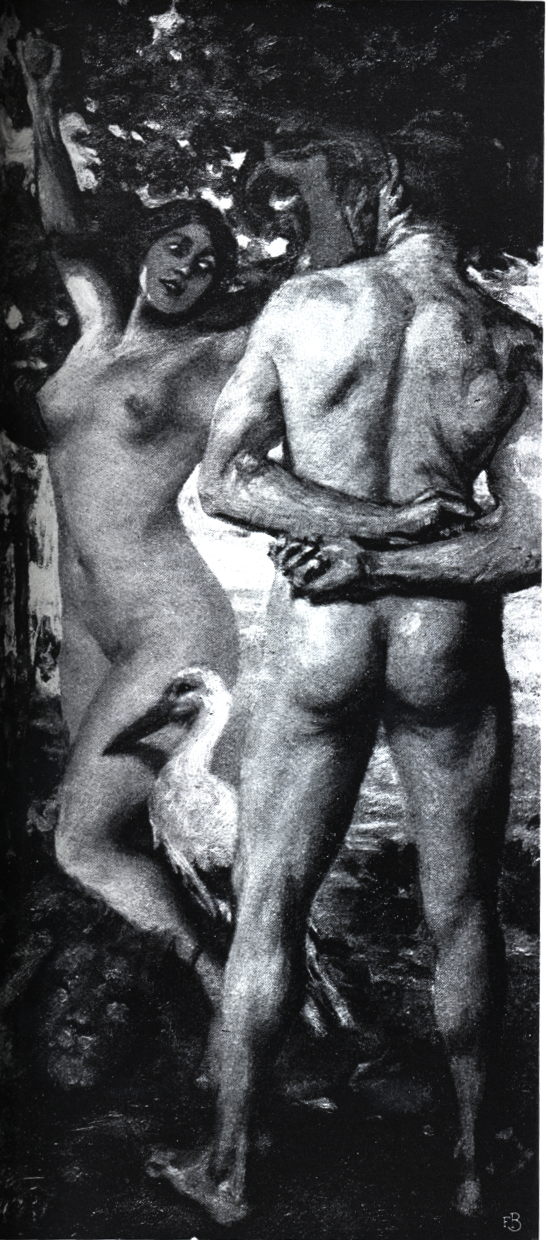
Albert von Keller (1844 - 1920), "Adam und Eva" (1900). What do you suppose Eve is looking at in this picture?
Colonel Madder tells us that in Eden, Adam was able to achieve an erection by wholly voluntary means, and experienced no lust, and that now Lieutenant Samson, thanks to government mad science, is in the same position. And the Colonel attributes this peculiar view to St. Augustine.
Fictional license on Dr. Faustus’s part? Ha! The fact is that Augustine devotes chapter upon chapter of De civitate dei, his most important single work, staging an amazing festival of sex-negativity, in which he ponders at length such important matters as “Of Shame which Attends all Sexual Intercourse.” And we find, in Book XIV, Chapter 24 of this theological magnum opus, the following clever bit of argument.
| Seminaret igitur prolem uir, susciperet femina genitalibus membris, quando id opus esset et quantum opus esset, uoluntate motis, non libidine concitatis. Neque enim ea sola membra mouemus ad nutum, quae conpactis articulata sunt ossibus, sicut manus et pedes et digitos, uerum etiam illa, quae mollibus remissa sunt neruis, cum uolumus, mouemus agitando et porrigendo producimug et torquendo flectimus et constringendo duramus, sicut ea sunt, quae in ore ac facie, quantum potest, uoluntas mouet. Pulmones denique ipsi omnium, nisi medullarum, mollissimi uiscerum et ob hoc antro pectoris communiti, ad spiritum ducendum ac remittendum uocemque emittendam seu modificandam, sicut folles fabrorum uel organorum, flantis, respirantis, loquentis, clamantis, cantantis seruiunt uoluntati. Omitto quod animalibus quibusdam naturaliter inditum est, ut tegmen, quo corpus omne uestitur, si quid in quocumque loco eius senserint abigendum, ibi tantum moueant, ubi sentiunt, nec solum insidentes muscas, uerum etiam haerentes hastas cutis tremore discutiant. Numquid quia id non potest homo, ideo Creator quibus uoluit animantibus donare non potuit? Sic ergo et ipse homo potuit oboedientiam etiam inferiorum habere membrorum, quam sua inoboedientia perdidit. Neque enim Deo difficile fuit sic illum condere, ut in eius carne etiam illud non nisi eius uoluntate moueretur, quod nunc nisi libidine non mouetur. |
The man, then, would have sown the seed, and the woman received it, as need required, the generative organs being moved by the will, not excited by lust. For we move at will not only those members which are furnished with joints of solid bone, as the hands, feet, and fingers, but we move also atwill those which are composed of slack and soft nerves: we can put them in motion, or stretch them out, or bend and twist them, or contract and stiffen them, as we do with the muscles of the mouth and face. The lungs, which are the very tenderest of the viscera except the brain, and are therefore carefully sheltered in the cavity of the chest, yet for all purposes of inhaling and exhaling the breath, and of uttering and modulating the voice, are obedient to the will when we breathe, exhale, speak, shout, or sing, just as the bellows obey the smith or the organist. I will not press the fact that some animals have a natural power to move a single spot of the skin with which their whole body is covered, if they have felt on it anything they wish to drive off—a power so great, that by this shivering tremor of the skin they can not only shake off flies that have settled on them, but even spears that have fixed in their flesh. Man, it is true, has not this power; but is this any reason for supposing that God could not give it to such creatures as He wished to possess it? And therefore man himself also might very well have enjoyed absolute power over his members had he not forfeited it by his disobedience; for it was not difficult for God to form him so that what is now moved in his body only by lust should have been moved only at will. |
Colonel Madder’s point exactly. You can find the relevant Latin text of Book XIV here, and an English translation here. I can make lots of strange shit up, but not this.
Just to recap here: St. Augustine, Bishop of Hippo, Doctor of the Church, and the most important Christian writer in the thirteen-century span between St. Paul and St. Thomas Aquinas, went on for sentence after sentence in his most important work speculating about the exact psychological mechanism through which Adam got his pecker up before the fall.
I wonder what the pious “family values” types would have to say about this, if they knew. Which I’m pretty sure they don’t.


